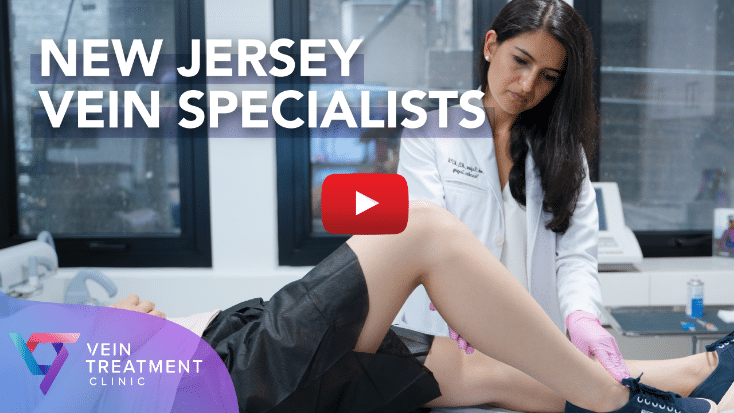Do You Need a Vascular Surgeon for Varicose Vein Treatment?

When people first notice swollen, twisted veins on their legs, one of the first questions they ask is, “What kind of doctor treats varicose veins?” It’s a valid concern, especially when symptoms such as aching, heaviness, or even itching and skin discoloration start to appear. The answer often depends on the severity of the vein condition and the type of treatment you need.
The primary specialists who treat varicose veins include:
- Vascular Surgeons
- Phlebologists
- Interventional Radiologists
- Dermatologists (in mild spider vein cases)
Out of these, a vascular surgeon is typically considered the go-to expert for more complex or advanced cases. These doctors specialize in the circulatory system and are trained to handle both surgical and non-surgical treatments. However, not every patient requires a vascular surgeon. For many, minimally invasive options performed by vein specialists at dedicated vein treatment centers are sufficient.
Why See a Vascular Surgeon for Varicose Veins?
You may wonder why you would need to see a vascular surgeon specifically. While some varicose veins are purely cosmetic, others are indicators of more serious conditions like chronic venous insufficiency or deep vein thrombosis. A vascular surgeon is trained to diagnose and treat such complications.
Here are scenarios where you might be referred to a vascular surgeon:
- You have large, bulging varicose veins that cause severe pain or bleeding.
- Non-invasive treatments have failed or are not suitable.
- You have leg ulcers or signs of skin breakdown due to vein disease.
- There’s a suspicion of deeper vein issues that may require surgery.
That said, many cases of varicose veins are treatable through non-surgical procedures, such as sclerotherapy or laser treatment, often performed at vein clinics or vein treatment centers by qualified vein doctors.
What Are the Most Common Vein Treatments for Spider and Varicose Veins?
Varicose veins and spider veins may look different, but they both stem from malfunctioning valves in the veins. Thankfully, a wide range of vein treatments for spider and varicose veins is available, many of which are minimally invasive and require little to no downtime.
Here are some commonly used treatments:
1. Sclerotherapy
This is often used for spider veins and small varicose veins. A solution is injected into the affected vein, causing it to collapse and fade from view. It’s a quick, in-office procedure with proven results.
2. Endovenous Laser Therapy (EVLT)
A popular choice for larger varicose veins, EVLT involves using laser energy to seal the problematic vein shut. The body naturally reroutes blood flow to healthier veins.
3. Radiofrequency Ablation (RFA)
Similar to EVLT, this procedure uses radiofrequency energy instead of laser to close off damaged veins. It’s minimally invasive and usually done under local anesthesia.
4. Vein Stripping and Ligation
This surgical option, often performed by a vascular surgeon, is now less common but may still be necessary for severe cases. It involves removing or tying off large veins.
5. Ambulatory Phlebectomy
Used for surface-level varicose veins, this treatment removes veins through tiny punctures in the skin. It’s done under local anesthesia and leaves minimal scarring.
Can Vein Treatment Centers Replace a Vascular Surgeon?
Vein treatment centers have become increasingly popular as they offer specialized care in a non-hospital setting. These centers are usually staffed by vein specialists, many of whom are either vascular surgeons, phlebologists, or interventional radiologists.
In many cases, vein treatment centers can provide all the care you need without the involvement of a hospital or a full surgical procedure. They are equipped to handle:
- Diagnosis using duplex ultrasound
- Outpatient procedures like EVLT, RFA, and sclerotherapy
- Follow-up care and symptom management
If your condition is not life-threatening or complicated, a vein treatment center might be the most convenient and cost-effective option. But if you need surgery or if complications arise, the center may refer you to a vascular surgeon.
How Do You Know If You Need Surgery for Varicose Veins?
While many people assume surgery is the only option for varicose veins, that’s no longer the case. However, surgical intervention may be necessary if:
- Veins are extremely enlarged or twisted
- There is a high risk of blood clots
- Skin ulcers develop due to poor circulation
- There’s persistent bleeding from damaged veins
A vascular surgeon can assess the risk and recommend the most suitable treatment approach. Often, these surgeons also perform minimally invasive procedures, so “surgery” doesn’t always mean a major operation.
Is It Better to Start with a Vein Specialist?
Absolutely. Starting with a specialist in vein care helps you avoid unnecessary steps. These doctors focus on vein treatments for spider and varicose veins and are trained to recognize symptoms early. They also know when to refer you to a vascular surgeon if needed.
During your first visit, expect:
- A review of your medical history
- A physical examination of your legs
- An ultrasound to assess vein function
- A personalized treatment plan
Choosing the right professional from the start improves outcomes and can help you avoid long-term complications.
What Should You Look for in a Vein Specialist or Vascular Surgeon?
When seeking treatment, it’s important to choose someone with the right qualifications. Here’s what to consider:
- Board Certification in vascular surgery, interventional radiology, or phlebology
- Experience with modern, minimally invasive techniques
- Access to ultrasound and diagnostic tools
- Good patient reviews and success rates
- Association with a reputable vein treatment center
Don’t hesitate to ask your provider about their training and experience. A good specialist will welcome your questions and explain your options clearly.
Final Thoughts: Do You Really Need a Vascular Surgeon?
So, do you really need a vascular surgeon for varicose vein treatment? The answer is: it depends on your individual condition. Many people benefit from non-invasive procedures performed by vein specialists at vein treatment centers. However, if your symptoms are severe or if complications develop, a vascular surgeon may be the best option.
Understanding what kind of doctor treats varicose veins helps you make informed decisions. Whether you choose a vein clinic or a hospital-based specialist, the key is early diagnosis and customized care. Thanks to medical advancements, you don’t have to suffer with painful, unsightly veins anymore.
If you’re unsure where to begin, start with a consultation at a local vein treatment center. They can evaluate your needs and guide you toward the right path—surgical or not.



